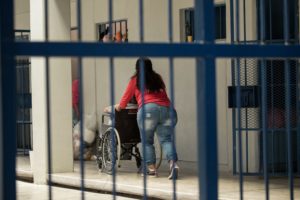Prepared remarks from the presentation by Pedro Nikken of Ojo Electoral at WOLA's November 2006 seminar before the December 2006 re-election of Venezuelan President Hugo Chávez. November 3, 2006.
Venezuelans will go to the polls again on December 3rd to elect a president, with the incumbent Chávez facing challenger Manuel Rosales, governor of oil-rich Zulia state. Most public opinion surveys showed Chávez enjoying a commanding lead over Rosales entering the final month of the campaign. As in previous contests, the fairness and transparency of the electoral rules and institutions have been called into question by the opposition, and some sectors continue to favor abstention.
Pedro Nikken is one of five directors of Ojo Electoral, an explicitly pluralist civil society association seeking to promote citizen participation and transparent elections worthy of public confidence in Venezuela. In an effort to seek points of consensus in a sharply polarized atmosphere, Ojo Electoral encompasses individuals with divergent political views and histories, including Mr. Nikken, frequently a critic of President Chávez’s government.
In addition to his role with Ojo Electoral, Mr. Nikken serves on the general assembly of the Inter-American Institute of Human Rights and as a commissioner with the International Commission of Jurists. He has also served as Dean of the law school at the Universidad Central de Venezuela; as judge and President of the Inter-American Court of Human Rights; as legal advisor to the UN Secretary General during peace negotiations in El Salvador; and as the UN special envoy to Burundi.
Download here

